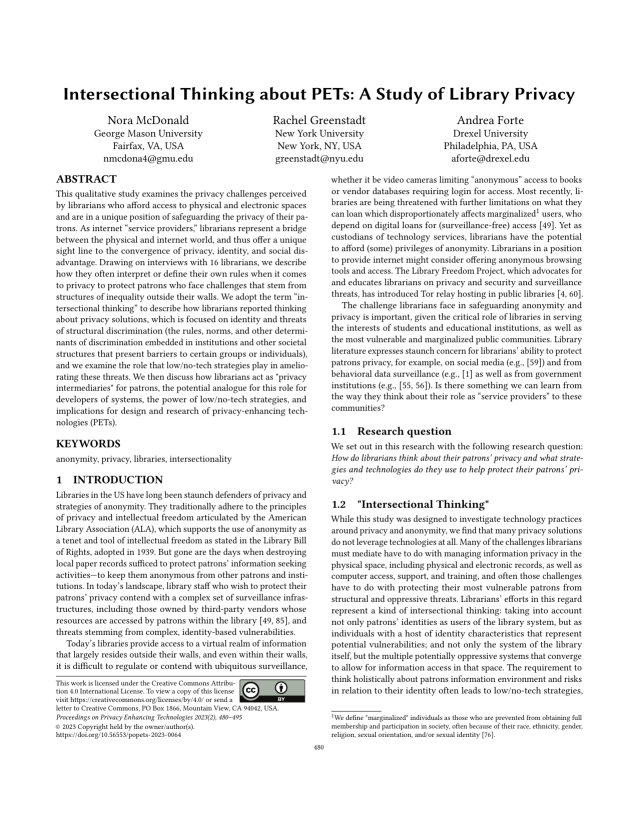Intersectional Thinking about PETs: A Study of Library Privacy
Authors: Nora McDonald (George Mason University), Rachel Greenstadt (New York University), Andrea Forte (Drexel University)
Volume: 2023
Issue: 2
Pages: 480–495
DOI: https://doi.org/10.56553/popets-2023-0064
Abstract: This qualitative study examines the privacy challenges perceived by librarians who afford access to physical and electronic spaces and are in a unique position of safeguarding the privacy of their patrons. As internet “service providers,” librarians represent a bridge between the physical and internet world, and thus offer a unique sight line to the convergence of privacy, identity, and social disadvantage. Drawing on interviews with 16 librarians, we describe how they often interpret or define their own rules when it comes to privacy to protect patrons who face challenges that stem from structures of inequality outside their walls. We adopt the term “intersectional thinking” to describe how librarians reported thinking about privacy solutions, which is focused on identity and threats of structural discrimination (the rules, norms, and other determinants of discrimination embedded in institutions and other societal structures that present barriers to certain groups or individuals), and we examine the role that low/no-tech strategies play in ameliorating these threats. We then discuss how librarians act as "privacy intermediaries" for patrons, the potential analogue for this role for developers of systems, the power of low/no-tech strategies, and implications for design and research of privacy-enhancing technologies (PETs).
Keywords: anonymity, privacy, libraries, intersectionality
Copyright in PoPETs articles are held by their authors. This article is published under a Creative Commons Attribution 4.0 license.

